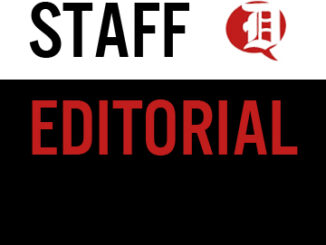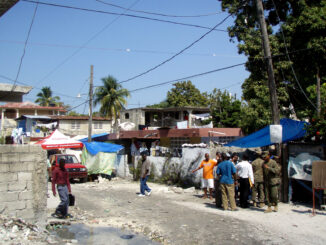
by the Duke Staff
March 3, 2022
Duquesne’s Mark Haas, a professor of political science, answered questions from Duquesne students about the crisis in Ukraine, Wednesday afternoon.
Haas is the Raymond J. Kelley Endowed Chair in International Relations and Professor of Political Science at Duquesne University. He has multiple publications discussing international security among worldly affairs.
What are the chances of Russia going beyond Ukraine, potentially in an attempt to rebuild the USSR? – Andrew C
Haas: I believe that the likelihood of attacks beyond Ukraine are extremely low. Russia will have to commit significant numbers of troops in Ukraine for the foreseeable future: to win the war, defeat a likely insurgency and then to maintain order. The challenges for Russian military to incorporate other states into a sphere of control will in most cases be more difficult and much more risky than Ukraine because almost all other potential targets after Ukraine are members of NATO, and NATO is orders of magnitude stronger than Russia.
Why should the U.S. care about a conflict happening overseas that doesn’t directly involve us? – Zoe S
Haas: It depends on how one views the conflict. From a pure power perspective, the U.S. doesn’t have much of an interest in the independence of eastern European countries. Even if Russia is able to fully incorporate Ukraine into a sphere of control, similar to the situation during the Cold War, this change does not add much to power relationships. Even with Ukraine as a vassal state, Russia remains much weaker than the U.S. A sustained insurgency in Ukraine would weaken — not strengthen — Russia, which would benefit America’s power interests. The war in Ukraine has also benefited U.S. interests by pushing European states — most notably Germany — to significantly increase military spending, which will provide the U.S. a greater ability to shift attention and capabilities to east Asia, or to come home.
U.S. interests are more jeopardized in terms of economics. The war will cause oil prices to increase and disrupt trade, both of which will harm the economic welfare of U.S. citizens as well as those of close allies. The U.S. should also care about the humanitarian catastrophe that the war is likely to become. Putin in past wars has given orders to deliberately target civilians on a large scale, both to deter insurgencies and to create a refugee crisis that would destabilize other rivals of Russia. From an ideological point of view, the U.S. has an interest in supporting a state, Ukraine, that desires to create a liberal democratic regime that is oriented to the West. The more these types of states exist, the safer the U.S. tends to be because liberal democracies don’t war with one another. To the contrary, they tend to be reliable allies.
What is the likelihood of American forces becoming directly involved in the conflict? – Lillia P
Haas: Virtually zero. US interests are not sufficiently tied to Ukrainian independence to risk war with a nuclear armed state.
How effective will economic sanctions and other types of sanctions be in deterring Russian aggression? – Zoe S
Haas: Historically speaking, sanctions rarely work in changing enemy state’s behavior, especially behavior that is considered a vital interest to the rival state’s leaders. If, however, sanctions significantly reduce Russia’s ability to export oil while seizing the wealth of the oligarchs that support Putin, they have a chance.
What do you see as the best possible solution to this crisis and what do you view as the U.S.’ role in the solution? – Hunter B
Haas: The best solution at the moment would be a negotiated solution that allows Putin to save face and retreat gracefully – perhaps a commitment by Ukraine not to join NATO for the indefinite future. U.S. leaders should not talk about and certainly not promote regime change in Russia because such talk or actions are most likely to push Putin to behave even more aggressively and callously to preserve his power.



